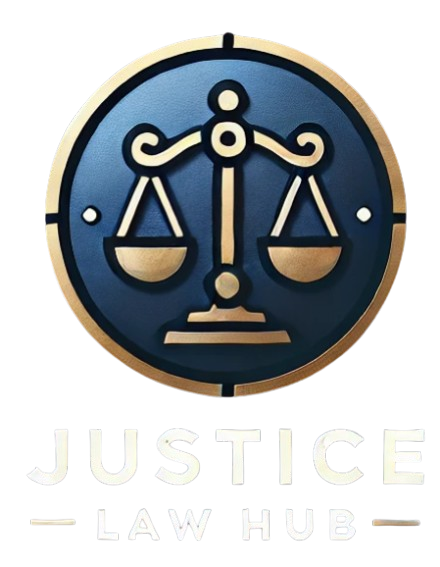When you’re wronged and thinking about legal action, one of the first questions that comes to mind is: how long does it take to sue someone? Unfortunately, the answer isn’t simple. Lawsuits are rarely quick. Depending on the type of case, the court system, and the parties involved, suing someone can take months—or even years.
This guide breaks down the timeline for lawsuits, from filing to resolution, while also covering common situations like defamation, slander, and personal disputes.
Understanding the Basics of Lawsuits
Before diving into timelines, it’s important to understand what suing someone actually means. A lawsuit is a legal claim filed in court where one party (the plaintiff) seeks relief, usually in the form of money or specific action, against another party (the defendant).
The lawsuit process generally includes:
- Filing the complaint – The plaintiff submits a formal complaint to the court.
- Serving the defendant – The defendant is officially notified of the lawsuit.
- Response – The defendant answers, often denying claims or filing motions.
- Discovery – Both sides exchange evidence, documents, and witness information.
- Motions and hearings – Either side may try to dismiss the case or limit evidence.
- Trial or settlement – The case is decided in court or resolved through agreement.
Each of these steps takes time, which is why lawsuits can feel never-ending.
How Long Does It Take to Sue Someone?
The timeline depends on several factors, but here are general estimates:
- Small claims court: 2–6 months
- Civil lawsuits (like contract disputes or property damage): 1–2 years
- Personal injury cases: 1–3 years
- Complex cases (business disputes, medical malpractice): 2–5 years
The average civil case takes around two years from filing to resolution. However, many cases settle out of court much faster, sometimes within months.
Factors That Affect the Timeline
Several elements determine how long a lawsuit takes:
- Court backlog – Busy courts mean longer wait times for hearings.
- Case complexity – Complicated cases with expert witnesses or large amounts of evidence take more time.
- Discovery disputes – If both sides argue over what evidence should be shared, delays are common.
- Settlement negotiations – A willingness to settle quickly can drastically shorten the process.
- Appeals – If one party appeals the decision, the case could drag on for years.
Related Post: 10 Tell-tale Signs a Small Law Firm Is Failing (And How to Turn It Around)
How Long Does It Take for Someone to Sue You?
Sometimes, you’re on the other side of the situation. You may be wondering: how long does it take for someone to sue you?
The answer depends on the statute of limitations, which sets a deadline for filing a lawsuit. Once an event happens—such as a car accident, breach of contract, or defamation—someone typically has a limited number of years to file.
For example:
- Personal injury: 1–3 years (depending on the state)
- Defamation: Often 1 year
- Breach of contract: 3–6 years
This means someone could sue you right away, or they might wait until just before the deadline. But once they file, you’ll usually be served within days or weeks, starting the legal process.
How Long Does It Take to Sue Someone for Defamation?
Defamation cases, which involve false statements that harm someone’s reputation, are often tricky and time-consuming.
So, how long does it take to sue someone for defamation?
- Filing the lawsuit: Within 1 year of the statement (in most states).
- Resolution: 1–3 years on average.
Defamation suits take longer because they often involve:
- Proving the statement was false.
- Showing that it caused actual harm (like loss of business or emotional distress).
- Defending against free speech claims under the First Amendment.
Many defamation cases settle before trial, but if they go to court, expect the process to be lengthy.
How Long Does It Take to Sue Someone for Slander?
Slander is a specific type of defamation that involves spoken false statements. Because spoken words are harder to prove than written ones (libel), slander cases can take significant time.
Timeline for suing someone for slander:
- Filing: Typically within 6 months to 1 year of the incident.
- Discovery: Several months to a year.
- Trial or settlement: 1–2 years, sometimes longer.
Evidence is key in slander cases. Witness testimony, recordings, or corroborating statements must be gathered, which can extend the timeline.
How Long Does It Take to File and Sue Someone?
Another common question is: how long does it take to file and sue someone?
Filing itself is quick—usually just a few days to prepare paperwork and submit it to the court. But serving the defendant can take weeks, depending on how easy they are to locate.
Once the lawsuit is officially filed and served, the defendant typically has 20–30 days to respond. So, from decision to action, it might take about a month before the lawsuit is underway.
Related Post: Best Pen for a Lawyer: Choosing the Perfect Writing Tool for Legal Professionals
Stages of a Lawsuit and How Long Each Takes
To better understand the timeline, here’s a breakdown of each stage:
1. Filing the Complaint (1–4 weeks)
Drafting and filing paperwork with the court is relatively quick, but preparation can take longer.
2. Serving the Defendant (2–8 weeks)
If the defendant is hard to find, serving them with notice can delay the process.
3. Response from Defendant (20–30 days)
The defendant must file an answer or risk losing by default.
4. Discovery (6 months–1 year or more)
This is often the longest stage of a lawsuit. Both sides exchange documents, question witnesses, and prepare evidence.
5. Pre-Trial Motions (3–6 months)
Motions can either speed things up (if the case is dismissed) or slow things down (if new disputes arise).
6. Trial (1–2 weeks, but scheduled months later)
Trials themselves don’t take long, but getting a court date can take many months.
7. Appeal (6 months–2 years)
If either side appeals, the process can extend far beyond the initial trial.
Why Some Lawsuits Take Years
It’s not uncommon for lawsuits to drag on for years. Some of the most common reasons include:
- Multiple parties – More defendants and plaintiffs complicate scheduling.
- High-stakes damages – Larger financial claims usually involve more evidence.
- Expert witnesses – Securing experts and scheduling testimony adds delays.
- Court congestion – Some jurisdictions are overwhelmed with cases, meaning long wait times.
Tips to Speed Up a Lawsuit
If you’re considering suing someone, you probably don’t want to wait years for results. While you can’t control everything, here are ways to shorten the process:
- Gather evidence early – Having documents and witnesses ready helps.
- Consider mediation – Alternative dispute resolution is often faster.
- Be responsive – Delays often come from missed deadlines.
- Choose an experienced attorney – A skilled lawyer knows how to avoid common delays.
- Stay open to settlement – Many cases resolve faster out of court.
When It’s Not Worth Suing
Sometimes, the time and expense of a lawsuit outweigh the benefits. If the damages are small, you might consider small claims court, mediation, or even walking away. Lawsuits can be stressful, costly, and emotionally draining.
Before suing, always weigh the potential outcome against the effort required.
Final Thoughts
So, how long does it take to sue someone? The answer is: it depends. Filing is quick, but resolution usually takes months to years.
- Small claims might resolve in months.
- Civil lawsuits often take 1–2 years.
- Defamation and slander cases can stretch 2–3 years or longer.
Whether you’re suing or worried about being sued, the best step is to consult with an experienced attorney. They can help you understand the specific timeline for your case and explore faster alternatives like settlement or mediation.



